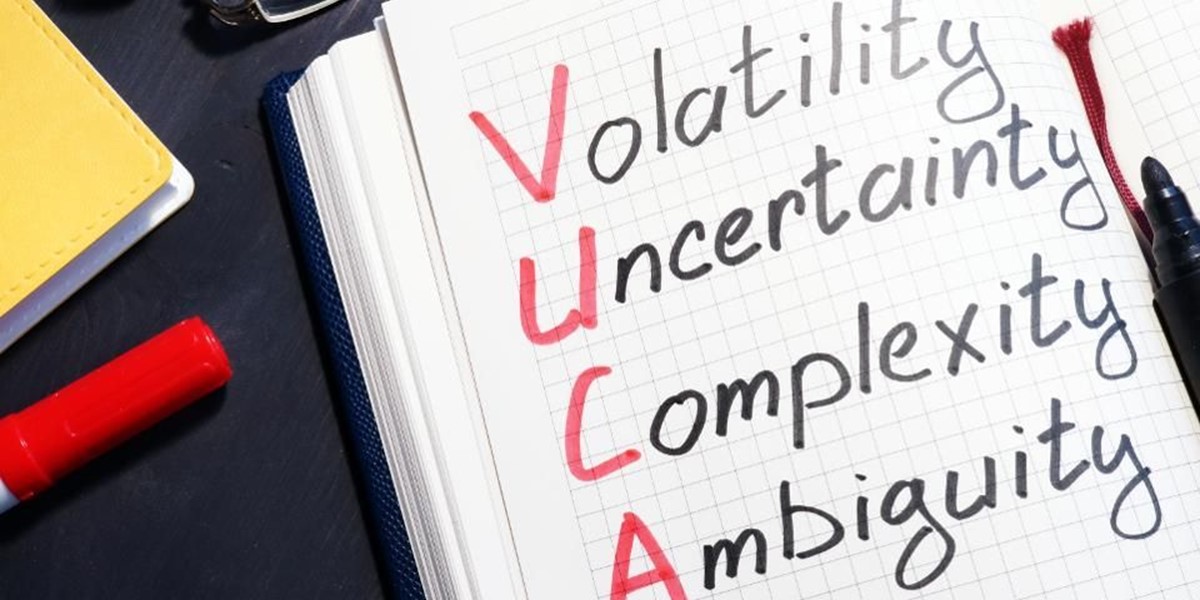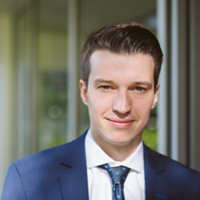Maxim Gilis obtained a Master in Applied Economics at the University of Antwerp in 2015. His master thesis examined the diversification of stocks in emerging markets. Next he obtained an additional Master of Finance at the Antwerp Management School, where he researched sustainable responsible investing for a European asset management company. He joined Econopolis in the summer of 2016.
How do we invest in a VUCA world?

The current situation in the financial world can best be described as a VUCA world. This term was thought up by the United States, in the 1980s, to describe the situation in the years following the Cold War. VUCA stands for “Volatility, Uncertainty, Complexity and Ambiguity”.
The political conditions of the time were seen to be volatile, uncertain, complex and ambiguous. These characteristics, however, also apply to the political and financial climate we are faced with today. There are plenty of relevant examples; how about the often impulsive and confused tweets from the US President Donald Trump? They regularly ‘throw spanners in the works’ with respect to ongoing negotiations, international relationships and other issues. As a consequence, they also impact upon the financial markets, something which the investor has to monitor closely. Another example is the outbreak of the corona virus, which certainly hadn't been forecast by most investors at the beginning of 2020. Nevertheless, this unexpected issue had a huge impact on the markets and is another representative example of how complex the current financial markets are and how quickly things can change. In order to successfully anticipate and capitalise on this type of event, the asset manager relies on a few characteristics, which also form the basis of Econopolis’ investment portfolio:
Conviction
Our convictions at Econopolis build upon the 6 Econoshocks defined by Geert Noels in his best seller by the same name. These relate to demography, emerging countries, finances, IT, energy and climate. These convictions are clearly present in our day to day work. Back in 2013, even as a young business, we opened an office in Singapore to keep a finger on the pulse in emerging countries, which form a significant share of our investments. Technology is also an important sector, where we have identified a great deal of potential. To capitalise on this, we have set up a fund that exclusively invests in exponential technologies, and applied our convictions in practice. In our opinion, these convictions are vitally important in the current VUCA world because they help us to see through the daily 'comings and goings’ and focus on the long-term. In order to protect our customers’ capital as effectively as possible and create growth for the future.
Agility
For Econopolis, agility means carefully anticipating the changing market conditions in order to guide our customers through this VUCA world. We do this is by physically gathering our investment team within the same office so that there is ongoing interaction between the teams who are responsible for shares, bonds and the macro-economy. This enables us, thanks to input from all team members, to adjust our allocations as and when this becomes necessary.
Sustainability
Sustainability was an integrated element of our organisation right from the start, both in our day to day trading practices and our investment policy. We aim to reassure our customers in the current VUCA world that we are a reliable partner who operates in their interests, without compromising on corporate social responsibility issues. We also see sustainability as a competitive advantage for businesses, which helps them navigate around this VUCA world because they are better prepared for the challenges of tomorrow. As a result, we also see that sustainable investments are providing higher returns.
At Econopolis, we think that the volatility, uncertainty, complexity and ambiguity in the financial markets will continue for some time. That is why we believe that a combination of the three characteristics set out above is of vital importance for guiding our customers through the current VUCA world.
